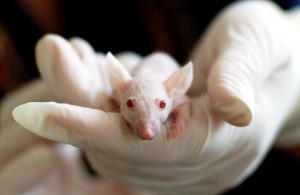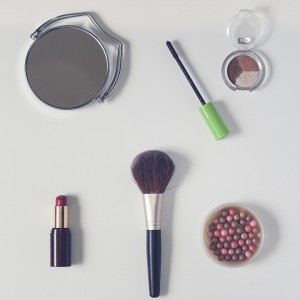There is a concerning amount of animal testing within many well-known makeup brands. Are consumers aware of this?
Makeup companies have the choice to test on animals, some claim it is a “must” as this will enable products to be purchased by China; the Chinese law states that products which are imported must be tested on animals first. This could prove to be a difficult obstacle to overcome as China offers a wide market for companies, however, if brands halted sales to China would this provoke an alteration to this controversial law? A Lancome makeup assistant, who preferred not to be named, supported this “According to PETA Lancome does test on animals but through my training I know that the only reason for this is that China only accepts products that have been animal tested, even though there are alternatives.”
Images and videos are spread across the internet displaying distressing media – showing an insight into animal testing for the public to view for themselves.
Covered up
Many makeup brands are continuing to test new ingredients for their products, this then leads to animal testing because there is no existing safety data. However, there are alternatives to animal testing.
Animals suffer greatly during tests – causing pain and distress. Testing for skin and eye irritation comprises of the chemicals being rubbed onto the skin of the animal or dropped into the eyes. Consequences of this can include: blindness, swollen eyes, sore bleeding skin, birth defects, convulsion and death. Furthermore, pain relief is not provided with the animal killed once the test has ended. Is this really necessary?
Alternatives to animal testing
The idea of using alternatives is supported by Phoebe Despard, a member of the public, “If companies had pressure from their customers about testing on animals they would have to conform to using other alternatives.” For instance, using ingredients which already have a long history of safe use, no further testing would be needed due to the existing safety data already in place. Furthermore, for a better prediction, with human skin in mind, non-animal tests can be performed. Science today offers up to date equipment enabling us to carry out skin tests using reconstructed human skin. For example: EPISKIN, EpiDerm and SkinEthic. However, the idea of a larger market due to sales with China and the ongoing testing of new ingredients – for improved products – still appeals over the alternatives to animal testing to many brands.
Many activists are promoting the cruelty which animals go through. Cruelty free campaigns have been set up by individuals in order to raise awareness of the topic and promote their views to the public. An example of this; HSI’s #becrueltyfree campaign – this is the ‘largest and most effective initiative’ to end cosmetics and animal cruelty. The aims of this particular campaign include banning animal testing for cosmetic products and ingredients, this would be achieved through changing the current law. Further, promoting the new n0n-animal tests, raising awareness of the topic while working with companies to divert them away from animal testing. This campaign has become international with famous names backing it including: Paul McCartney, Ricky Gervais, Ke$ha etc.
Which brands are cruelty free and which are not?
Well-known brands that DO use animal testing:
• Avon
• Benefit
• Bobbi Brown
• Burberry
• Calvin Klein
• Chanel
• Clinique
• Dior
• Dolce & Gabbana
• Estee Lauder
• Giorgio Armani
• Givenchy
• L’Oreal
• Lancôme
• MAC
• Max Factor
• Maybelline
• OPI
• Rimmel London
• Revlon
• Stila
• Tom Ford
• Yves Saint Laurent
Well-known brands that DO NOT use animal testing:
• Urban Decay
• Smashbox cosmetics
• NYX
• Obsessive Compulsive Cosmetics (American)
• Aesop
• MUA
• E.l.f
• GOSH
Do you think we should be made more aware of this?
Some members of the public voiced their opinion and supported the idea of the lack of awareness; Chloe Gledhill, a makeup artist stated: “I feel that if people were more educated on what happens with animal testing and which brands tested on animals it would massively impact companies sales by decreasing them which would force the brands to make a change.” Furthermore, Riah Brough, a university student said: “I personally do own make up from brands that do test on animals, but this is because I wasn’t aware at the time of buying. I’m not clear which brands use animals to test, but if it was more clear I would think twice when buying.”
Beauty blogs and campaigns enforce the view of cruelty free testing. However, there is still a long way to go to make it a reality – for all cosmetics to be tested cruelty free. If more people were aware perhaps it would make a significant difference.

